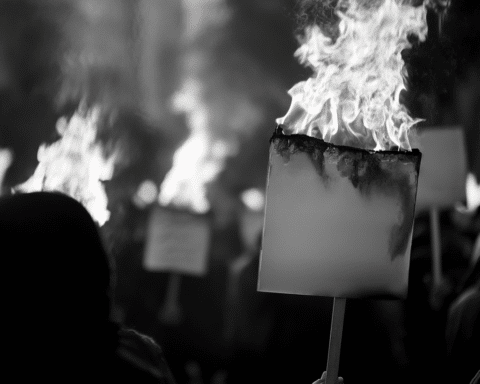In a dramatic turn of events, a 134-page court order has been revealed in Brazil, shedding light on a purported plot orchestrated by former President Jair Bolsonaro and his political allies. The document, disclosed just yesterday, authorized a federal police operation aimed at Bolsonaro and approximately two dozen associates. It alleges Bolsonaro’s involvement in a scheme to undermine public confidence in the 2022 presidential election, which he lost, and to lay the groundwork for a potential coup.
This revelation comes on the heels of existing knowledge that Bolsonaro had been striving to retain power leading up to the 2022 election, irrespective of its outcome, by casting doubt on Brazil’s electoral systems. Notably, Brazil’s Supreme Court had already barred him from seeking office until 2030.
The court order unveils a broader conspiracy, indicating that Bolsonaro, along with government ministers and military leaders, purportedly conspired to disseminate misinformation about voter fraud and recruit military personnel to support a coup. Bolsonaro is even alleged to have personally edited a document proposing the arrest of a Supreme Court justice.
Though Brazil’s democracy had been safeguarded by last year’s court ruling, this investigation remains significant in its effort to defend Brazilian democracy and hold those involved accountable.
Coincidentally, the unfolding events in Brazil align with a U.S. Supreme Court hearing on former President Donald Trump’s eligibility post-2020 election. Justices expressed skepticism during arguments, suggesting a likely outcome where Trump remains eligible for future ballots. The decision would then be left to Congress to determine whether the constitutional clause prohibiting insurrectionists from holding office applies to him.
This juxtaposition underscores the divergent approaches to safeguarding democracy between Brazil and the United States. While Brazil’s Supreme Court swiftly acted to ban Bolsonaro from running for office and initiate an investigation into the subversion of democracy, the U.S. judicial process moves more slowly, potentially allowing Trump to return to office before rulings on his criminal cases.
The contrast highlights the differing levels of speed and efficacy in responding to threats against democracy. In Brazil, decisive action has been taken to address alleged wrongdoing, while in the United States, the judicial system’s pace may afford opportunities for individuals accused of undermining democratic institutions to remain politically active.
As both countries navigate these pivotal moments, the outcomes will undoubtedly shape the future trajectory of democracy and the rule of law in their respective nations.




